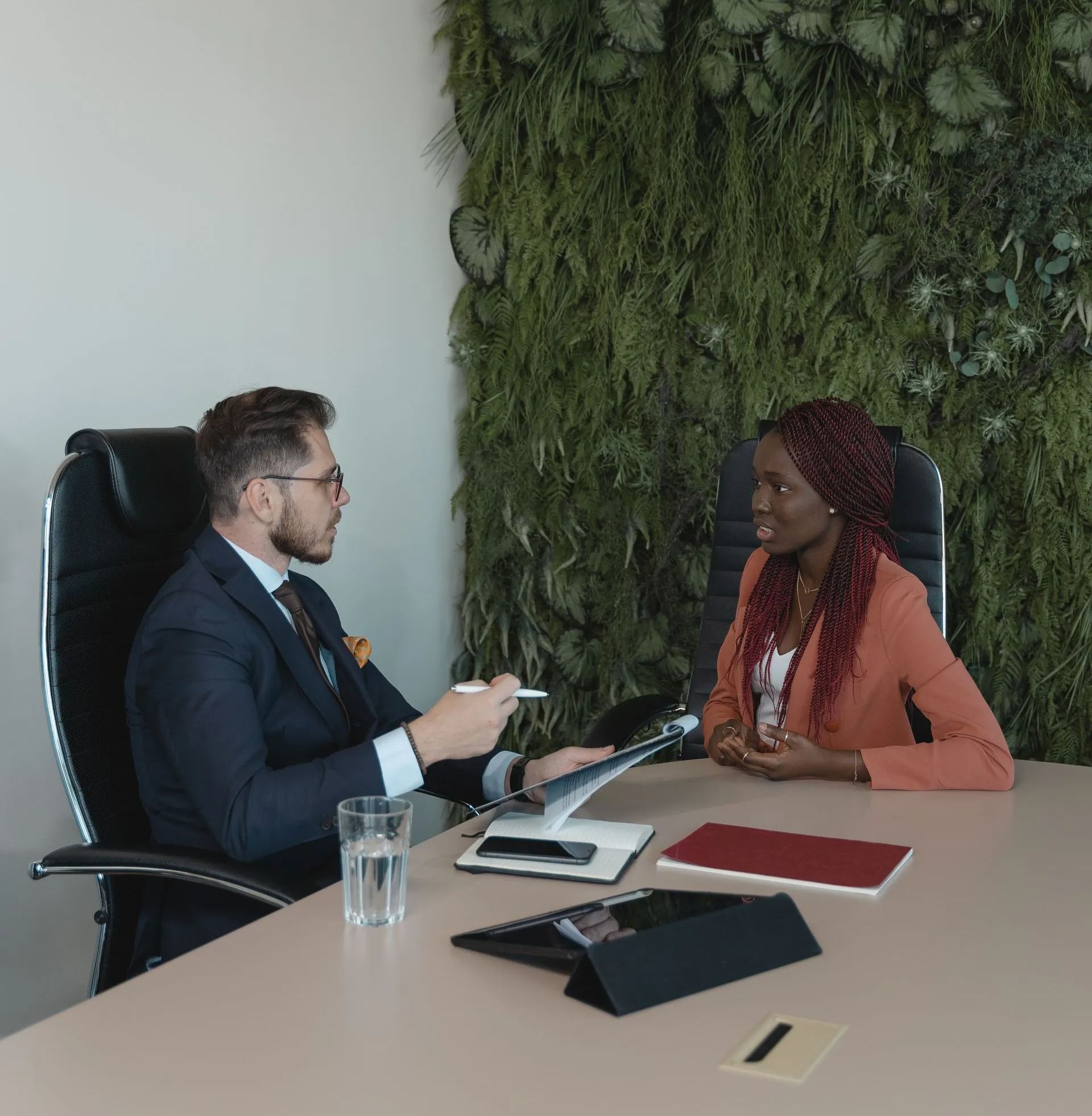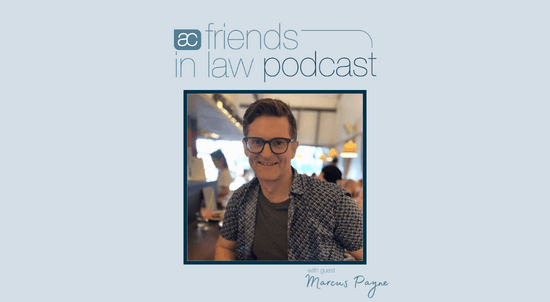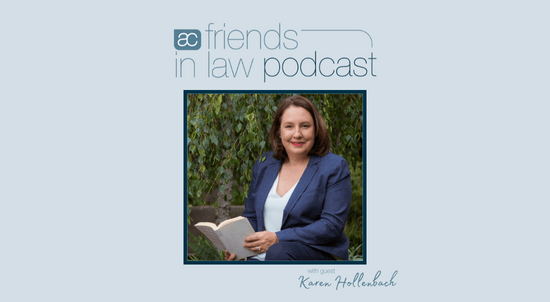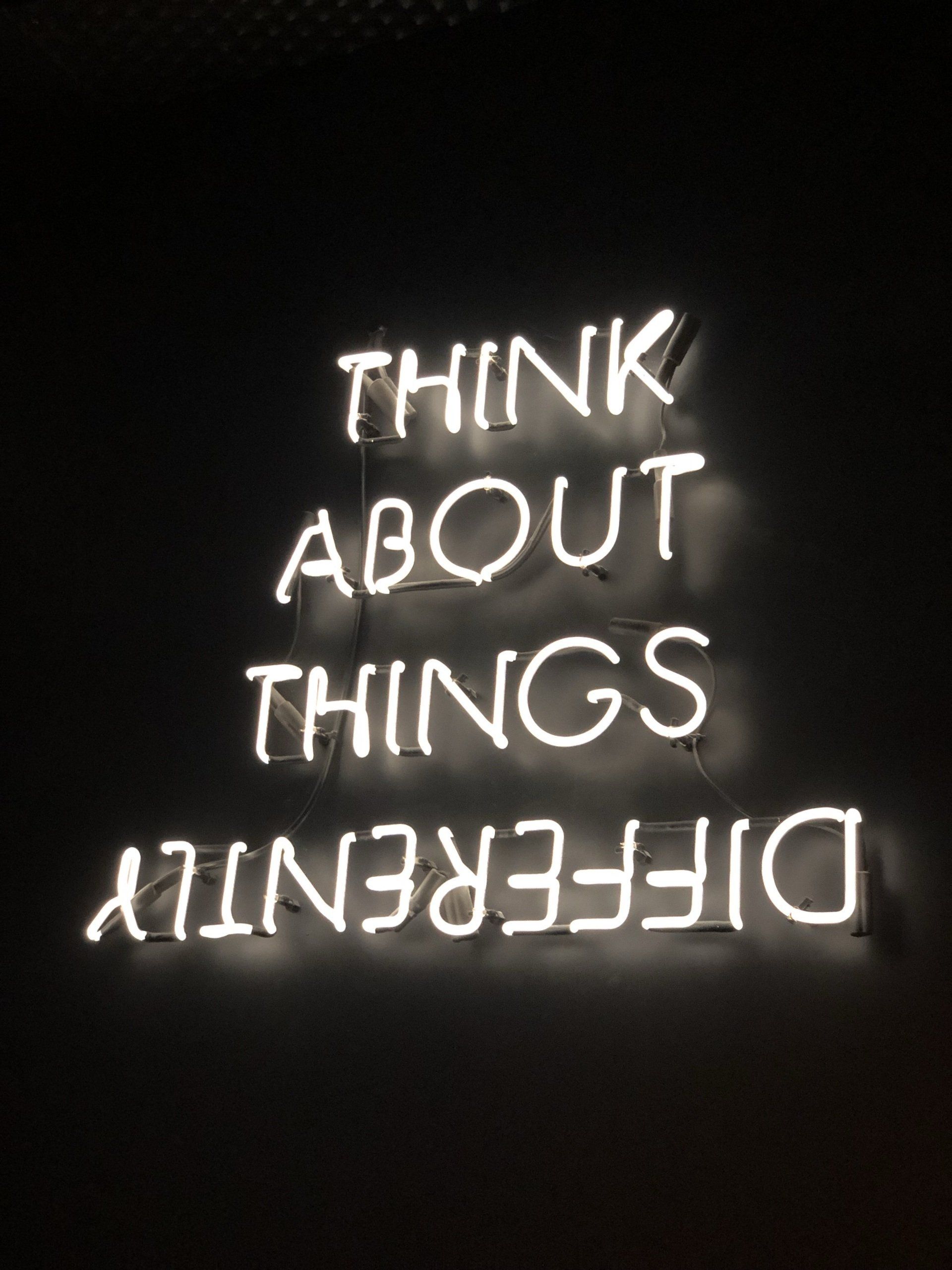
When it comes to landing your next dream job the interview process is a nerve-wracking but necessary step towards winning the role. The Queensland legal industry is a highly competitive sector, and it is important to stand out from other candidates by showcasing your skills, knowledge, and experience in a way that impresses your potential employer. Whether you're a new graduate or a seasoned lawyer with years of experience, preparing for a job interview requires careful planning and practice. Read on for our tips and strategies for preparing for your next job interview and increasing your chances of making the law firm, government, or corporate short-list.
1. Always Be Prepared
We recommend that practicing lawyers who are serious about career progression should always have a ready-to-go folder prepared with original academic transcripts and relevant samples of work. By scheduling annual updates to your resume, you can seamlessly capture achievements, matters and key changes in responsibilities.
Don’t forget to ensure that you have referees ready to sing your professional praises and that these need to be updated regularly. Having a basic cover letter saved on file can also be a handy template to tailor to opportunities that arise.
When you apply for a role, ensure that your cover letter and resume are meeting the key position requirements, responsibilities, and most of all the expected skills profile. The job advertisement is often full of key words, and hints about what you are likely to be asked at your interview. Keep this handy to refer to for your preparation.
2. Being Well-Researched is Impressive
Ensure that you know all that you can about the organisation you are interviewing with. Understanding it's hierarchy, corporate structure, key people, company leaders, the company mission and values and even a little of it’s corporate history will make a good impression. Take the time to learn what you can about the person or people who will be interviewing you and about the role that is being filled.
Some of this information can be found on company websites, LinkedIn company pages, or by talking to your connections or peers that are working for your target firm.
3. Practice Makes Perfect
Especially if you have not been interviewed in some time, we recommend rehearsing your answers to likely questions. Even for the most confident lawyer, talking about yourself can be uncomfortable. Consider practicing answers to the questions you are likely to be asked such as:
- Can you tell us a little about yourself?
- Why did you choose a career in the law?
- Tell us how you have handled a challenging client.
- How do you go about handling stressful situations?
- Tell us how you manage your caseload?
Don't ignore the technical questions. It can be hard to know just how much emphasis the interviewers are likely to put on the technical aspects of a role, but thinking through likely areas that may be explored is key. Make sure to review relevant and key legislation as it may come up and not being across this can impact on your candidacy. You may also want to consider practicing a mock interview with a helpful friend or even recording your responses on video to review them yourself. We also recommend that you take the time to craft a personal statement that is a quick summary about what is unique about you, your skills and why they should hire you ready to deliver if necessary.
4. First Impressions
It should go without saying that you should be punctual and well-presented. At Alex Correa Executive, we discuss with our candidates the format of any interview with our clients. It is important to know whether it is over the phone, online or face to face. If it is an in-person interview, ensure you know the location of the interview and allow enough travelling time to get there and a little extra for contingencies. Be friendly to everyone you encounter in the company office and work on establishing a rapport with the person interviewing you. Eye contact and using their name often can help with building rapport.
Remember to speak clearly, at a sensible volume and pace that can be easily understood. Listen carefully to what the interviewer says and ask them to repeat a question if you are unclear. A methodical and considered approach to how you respond to questions and speak is likely to be viewed as an asset by most hiring managers.
We also recommend keeping a close eye on your body language and ensure that you keep this positive throughout the interview.
5. Video Interview Tips
Video interviews are increasingly used by firms as part of the interview process. Treat these just like a face-to-face interview and dress the part. Don’t forget to consider details such as the background you are presenting, the lighting, the screen angle. We recommend that your camera is aimed at face level and that you are looking at the camera rather looking at yourself on the screen. Make sure you are familiar with the video interview software being used (such as Skype, Webex, Zoom or MS Teams) and that you have a good microphone and audio set up. Avoid using your phone for video interviews. No one likes a shaky video or one that is poorly positioned showing more of your nose than your eyes.
6. What the Interviewer is Looking For
The purpose of the interview is so that the hiring manager can gain a greater understanding of your relevant work experience and personality and how well you are suited to the firm’s organisational culture. They may wish to know about your interests and career goals and will ask a series of questions designed to explore your resilience, motivation, and how you respond to stressful situations. They will be keen to understand your organisational skills, management style, and approach to working with colleagues and solving problems.
Depending on the type of legal role you are applying for your financial and analytical skills, negotiation, communication and presentation skills will also be areas they wish to explore. Many experienced interviewers have great people skills and a good ability to read between the lines. Try and relax and demonstrate as much of your true professional self as you feel comfortable showing.
Answer questions using the STAR method, which helps you structure your responses and helps the interviewer get a deeper understanding of your skills and professional approach. The STAR method is an interview technique that gives you a straightforward form that you can use to tell a story by laying out the
Situation, Task, Action, and Result. (STAR)
Situation: Set the scene and give the necessary details of your example
Task: Describe what your responsibility was in that situation
Action: Explain exactly what steps you took to address it.
Result: Share what outcomes your actions achieved.
Don’t forget that a job interview is also your opportunity to learn more about the organisation and the role and to make sure you are a good fit for them and vice-versa. This leads us onto our next point, the importance of asking questions of your own during the interview.
7. Ask Well-Informed Questions
The research that we recommended you do prior to the interview will help you develop a list of suitable questions to ask at an appropriate time towards the end of the interview. Some questions you might like to consider asking are:
- How does your employee evaluation work?
- What would you say is currently the team’s biggest challenge?
- Can you tell me about the training and career development opportunities within the organisation?
- Should I be successful, what would you expect that I would have achieved within the first 90 days?
- What would the likely work/mix look like within the first 3 months, 6 months and then in 12 months? (This too will give you an understanding of how the role is likely to evolve.)
- How would you describe the culture of your team and what keeps people here?
- Can you walk me through the next steps for this role?
Having these questions noted down ahead of time makes you look well-prepared and shows that you have considered the challenges and opportunities involved in the role. Don’t be afraid to refer to your notes here, but avoid at all costs taking any notes in the interview. In our experience, this doesn't go down too well with some interviewers.
8. After the Interview
Always send a follow up e-mail to thank the interviewer for their time. Offer to make yourself available if they have any further questions. Ensure they know that you continue to be enthusiastic about the potential opportunity and are looking forward to hearing from them.
For a lawyer, preparing for a job interview requires a combination of careful research, thoughtful planning, and effective communication. By taking the time to learn about the company, the position, and the interviewer, you can tailor your approach to fit the company values, culture and requirements and demonstrate your value as a potential employee.
Additionally, practicing your interview skills, including your ability to answer questions confidently and articulately, can help you stand out from other candidates and leave a lasting impression. With these tips in mind, you can sail through your next job interview with confidence and increase your chances of landing the legal job of your dreams. And do not forget, as legal industry specialist recruiters with many years of experience interviewing candidates we can help!
If you would like to discuss your career with one of our specialist legal industry recruiters, please get in touch. We are always here to help!
Related Articles





Alex Correa Executive is one of Queensland's leading specialists in HR and legal recruitment consulting.
NAVIGATION
QUICK LINKS
Alex Correa Executive respectfully acknowledges the Turrbul people, Traditional Custodians of the land which we live and work, and pay our respects to elders, past, present and emerging. We extend that respect to all Aboriginal and Torres Strait Islander peoples.





